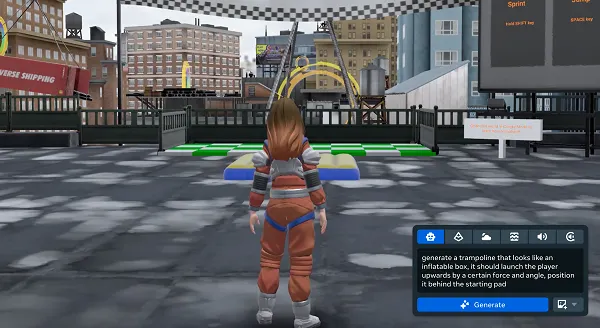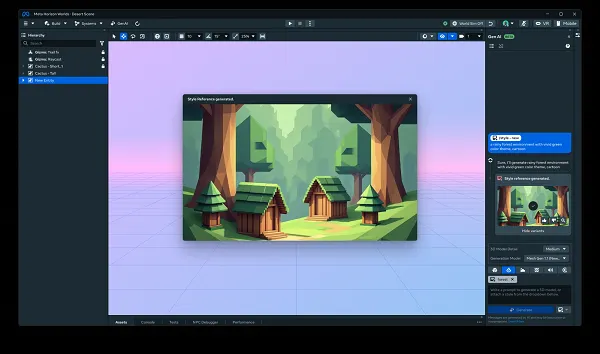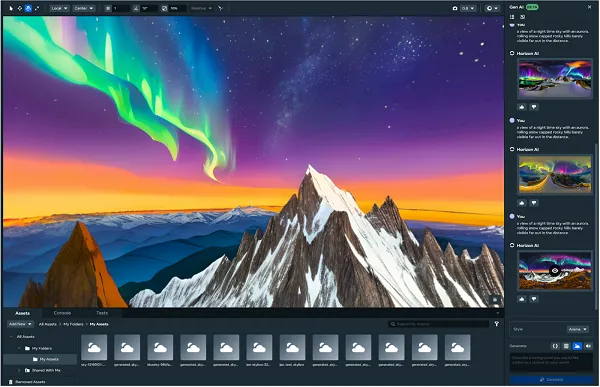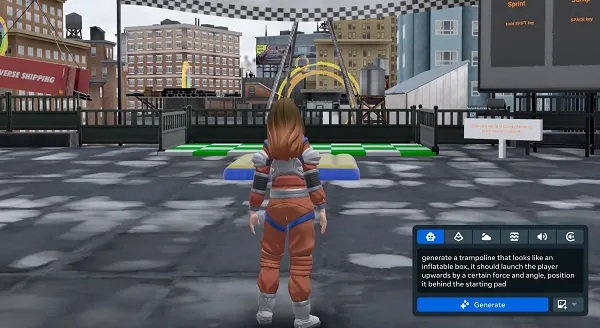The next stage of Meta’s VR development is coming into view, with Meta adding a new conversational AI chatbot into its Horizon Worlds creation tool on desktop, which is another step towards being able to speak VR experiences into existence.
As you can see in this example, posted by UploadVR, the new Horizon Worlds creator assistant bot enables you to build interactive VR experiences without any coding or development knowledge. You just tell it what you’re trying to do in the chat box, and the tool will either provide guidance, or take on the task for you, which could be a massive step for VR world creation.
As explained by Meta:
“The Creator Assistant can be your new partner, working alongside your team, or just with you. This tool can help automate setup tasks, guide you with context-aware documentation and UI tips, support natural language brainstorming to design core loops and generate scripts, all with the aim of accelerating your creation journey and helping you complete your functional prototype.”

And depending on how functional it is, it could be a significant step for VR development, and VR engagement more broadly, enabling anyone to build VR games and activities, which will let you experience wholly immersive digital worlds of your own design.
So if you really want to experience space travel, or parachuting, or deep sea diving. Just put on your headset, and speak it into existence, and eventually, Meta VR will populate that experience for you, in the moment.
In addition to this, Meta’s also rolling out a new “Style Reference,” which enables VR creation in different art styles.

“Style Reference empowers you to easily generate, save, and reuse specific styles, ensuring consistent results across your creations. Whether you’re designing detailed environments, crafting immersive audio, or building cohesive visual assets. Style Reference helps maintain a unified aesthetic and accelerates your workflow.”
The tools expand on Meta’s “Mesh Generation” and “Texture Generation” elements, which also enable users to generate VR environments via AI prompts.

Through this, Horizon creators can build entire virtual environments through AI prompts, without the need for in-depth programming or 3D modeling experience.
The updated chatbot expands this capacity even further, while also giving you more ways to build interactive experiences via AI agents, taking even more of the development workload off the user.
Which also means less technical knowledge is required, and eventually, we are indeed moving into Star Trek Holodeck-style territory, where you’ll simply be able to put on a VR headset and speak your intended experience into existence.
That could be a transformative step for VR adoption, enabling many, many more people to create engaging VR experiences. And the more options that are made available, the more likely that Meta will activate viral trends, which will then boost interest in VR overall.
Which comes back to is metaverse push, and the creation of innovative VR worlds that could eventually become the next plain of digital interaction.
Meta’s not talking about the metaverse so much these days, but it remains a longer-term goal, and its developments like these that point to the potential of the metaverse shift, when it does become a thing.
And it will. It seems inevitable that, eventually, VR interaction is going to become more mainstream, and that the platform which provides the best experiences within such stands to win out in a big way. It’s another pathway for Meta’s future success, alongside AI development, which, in combination, could make Meta the key facilitator of online interaction for years to come.
In addition to these updates, Meta’s also rolling out its latest Horizon Worlds AI creation tools to creators in India, Singapore, Vietnam, Brazil, Argentina, Mexico. Its GenAI tools in the Worlds desktop editor are also now available to all creators across most of the European Union.
Sure, Meta’s cooled on its metaverse hype, as Zuckerberg has been distracted by the allure of AI, and sure, user interest in VR remains fairly muted at present. But the building blocks for the next stage of digital interaction are gradually falling into place.





